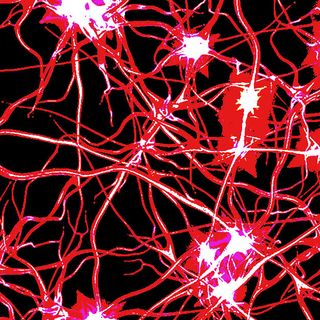
Parenting Stress Can Change the Way Your Genes Work
It’s true what they say — having kids changes you.

Everyone tells you life will never be the same after you have kids. But what they don’t tell you — what we’re just finding out — is just how true that statement is. New research suggests that parenting stress can change you on the DNA level.
“Raising children is inevitably stressful. We wanted to see if parenting stress influences DNA methylation,” said the study’s senior author Jacquelyn Taylor, of NYU’s Rory Meyers College of Nursing.
DNA methylation is a mechanism used to control gene expression (put simply, the ‘turning on’ or ‘off’ of a gene). It’s a type of epigenetic change — that is, a change to how a gene works, not to its structure or to the broader DNA sequence its a part of. Alterations in how genes express are as powerful as the genetic code itself, with the potential to contribute to a variety of diseases. And more and more evidence is suggesting that one of the most powerful influences on gene expression is, in fact, environmental stress.
When you’re a parent, your environment is kids. Taylor’s study examined the relationship between parenting stress and DNA methylation among African American mothers and their children. Health conditions to which stress is a contributing factor — like high blood pressure and heart disease — are particularly pervasive among African American women. Seventy-four mother-and-child pairs took part in the study for a total of 148 participants. Parenting stress among mothers was measured using the 36-question Parenting Stress Index, and DNA methylation was measured using saliva samples from both mothers and children.
The researchers found that more than 95 regions on the genome where DNA methylation occurs were associated with the level of parenting stress mothers reported; of the 95 sites, 83 had decreased DNA methylation with higher levels of parenting stress. Importantly, the researchers identified a change in DNA methylation associated with a gene known to play a key role in stress signaling, when higher levels of parenting stress were observed.
Researchers also observed DNA methylation patterns in children mirrored patterns in their mothers. But parenting stress is experienced differently for parents and children, Taylor noted, and it is possible that children experience other stressors that influence the way their genes function.
The researchers’ next steps are to look at how social determinants of health, including parenting stress, and changes in DNA methylation influence blood pressure in this population. Ultimately, they hope the insight can help prevent stress-induced conditions, or at least inform treatments of conditions for which stress is a risk factor.
“Clinicians need to consider social determinants of health, like stress, as both root causes of illness and symptoms that can be treated,” Taylor said.
Related


The Curious Link Between Infant Attachment Styles and Conspiracy Theories
